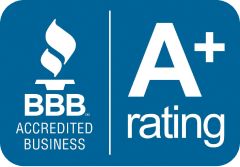In-home caregivers for personal care or housekeeping are often not covered by Medicare if that is the only service you require.
If you also require medical care to recuperate from surgery, a sickness, or an injury, Medicare may pay for short-term caregivers.
If you’re homebound and your doctor orders it, Medicare will pay for short-term house health services like skilled nursing care, physical therapy, or occupational therapy.
If you have a medical condition that makes it difficult for you to get out and about, home healthcare may be a more convenient, cost-efficient, and effective option.
Original Medicare (Parts A and B) may occasionally fund medical treatment provided to you at home if you are homebound. For a limited time following an illness or accident, Medicare may pay for some in-home assistance with your daily requirements.
However, if you require long-term assistance with daily chores in your home, you should be aware that Medicare normally does not pay for such services.
Find Medicare Plans in 3 Easy Steps
We can help find the right Medicare plans for you today

Does Medicare cover caregivers?
The type of care you receive, the reason you need care, and the amount of time you’ll need it all determine whether Medicare will cover in-home caregivers.
In-home medical care
If any of the following apply to you and you’re homebound due to an illness or accident, you can access Medicare house health benefits:
You are only permitted to leave the house for short expeditions, such as to the doctor or to religious services. One exception: if you go to adult day care, you can still have in-home care.
Your doctor confirms that you require at-home care and creates a plan that outlines the services you require.
You’ll require skilled nursing assistance (less than 8 hours per day and no more than 28 hours per week, for up to 3 weeks).
Your doctor believes that your condition will improve in a realistic, or at the very least predictable, time frame.
You’ll need a qualified physical, occupational, or speech therapist to come up with a plan to help you improve, maintain your current health, or avoid getting worse.
You’ll need a home health assistant to assist you in your recovery.
The home health agency that is providing your care has been approved or certified by Medicare.
You must see your doctor less than 90 days before or 30 days after you begin receiving home healthcare services to remain eligible for in-home care.
What kinds of services can I receive in my home?

Physical therapy

If you see a physical therapist in your home, Medicare is likely to cover the following services:
- An evaluation of your situation
- exercises and gait training to aid recovery from surgery, injuries, illnesses, or neurological problems such as stroke.
- Wound care after surgery
- Injuries, burns, and lesions require wound care.
Occupational therapy

If you are treated at home by an occupational therapist, you can expect to receive the following services:
- assisting with the establishment of daily routines for taking medications, planning meals, and attending to personal requirements
- training in energy-saving and stress-reduction techniques.
- It teaches you how to do daily things in a secure manner.
- Given your demands and condition, we can assist you in regaining your capacity to perform.
- assisting you in following your doctor’s orders
Speech therapy
Here are some of the services you may receive if a speech therapist visits you at home:
- assistance with remembering or recognizing words.
- therapy to help you regain your swallowing capacity.
- therapy to assist you in eating and drinking as normally as possible.
- If you can’t speak, you can learn about other ways to communicate.
- If you’ve lost your hearing, you’ll need to learn new ways to communicate.

Nursing care
If you have a registered nurse or a licensed practical nurse visit you at home, they may:
- Your wound dressings should be changed.
- Replace your catheter.
- Medication injections
- do tube feedings.
- deliver intravenous drugs.
- They will teach you how to use your prescriptions and take care of yourself.
Home health aides
In contrast, home health aides are more likely to assist you with the following services:
Heart rate, blood pressure, and body temperature should all be monitored.
Ensure that you’re taking your prescriptions as prescribed.
determining whether or not your home is secure for you, based on your needs and current situation
ensuring that you eat and drink in a healthful manner
Other services

In-home social services may also be available to you. If you qualify, you may receive assistance in locating community services to assist you in adjusting to your condition. You could also receive social, emotional, or psychological counseling as a result of your illness.
In-home custodial care
Caregivers who assist you with activities of daily living are normally not covered by Medicare unless they are required for a limited time while you recuperate from an illness or accident.
Meal delivery or preparation, shopping, laundry, housekeeping or cleaning, aid bathing and dressing, and assistance using the lavatory are all examples of custodial care. If these are the only services you require, Medicare will not pay for a caregiver to perform them in your home.
In addition, Medicare does not cover:
- In-home care is available 24 hours a day, seven days a week.
- professional nursing care 24 hours a day, 7 days a week
- transportation
YOUR MEDICARE HOME HEALTHCARE RIGHTS Certain rights and benefits are guaranteed by Medicare. You have the following rights: to pick a home health care provider to have your possessions and home treated with care to obtain a copy of your health plan in writing to be able to make your own healthcare choices if you want to know if your treatment plan is changing to ensure that your privacy is safeguarded to choose a family member or representative to make decisions on your behalf if you are unable to do so yourself to be advised (in writing) of your anticipated costs can report fraud or abuse by calling the home health hotline You receive detailed instructions on how to appeal Medicare decisions and report fraud or abuse
Cost of hiring a caregiver
According to a 2019 industry assessment on home health costs, a home health aide is estimated to cost $4,385 per month on average. The average monthly cost of a caregiver providing custodial care services was $4,290, according to the same poll.
How can I get help paying for a caregiver?
If you or a loved one has spent all of their money on in-home caretakers, you might be eligible for both Medicare and Medicaid.
Every state has at least one waiver program for home and community-based health services. If you fulfill the requirements, a waiver program like this could help you pay for things like:
- daycare for adults
- janitorial services
- daily personal care assistance
- alterations to your house
- assistance with housekeeping
If you or a member of your family thinks you or someone in your family could need custodial care, a long-term care insurance policy could help you pay for it.
A Medicare supplement (Medigap) plan may also be able to assist you in covering some of the expenses that Medicare does not cover.
Which parts of Medicare cover caregivers?
Part A
Part A of Medicare covers hospitalization. Part A will cover home healthcare for 100 days if you were admitted to the hospital for three consecutive days or if Medicare financed your stay in a skilled nursing facility, as long as you obtain home health services within 14 days of leaving the hospital or nursing institution.
Part B
Medical coverage is provided by Medicare Part B. If you require home health care but have not been admitted to the hospital, Part B will reimburse your costs. You must, however, meet the other eligibility requirements.
Part C (Medicare Advantage)
Private insurers administer these programs, which provide the same basic coverage as original Medicare.
Medicare Part C (Medicare Advantage) plans may require you to receive home health care from a provider in the plan’s network. For further information, check your plan.
Part D
Part D programs for Medicare are commercial insurance plans as well. During your home healthcare time, they may cover some or all of the cost of prescription drugs you may require.
Medicare supplemental (Medigap)
Medigap policies, like Part C and Part D plans, are sold by commercial insurance firms. They might be able to assist you in covering the costs of home healthcare that Medicare does not cover.
Find Medicare Plans in 3 Easy Steps
We can help find the right Medicare plans for you today
How do I find a caregiver?
If you wish to do some research, Medicare has a tool to assist you in identifying a home health agency in your area. Once you’ve found a local agency, you can utilize Medicare’s home health agency checklist to see if they’ll provide the level of care you require.
Your state survey agency maintains an up-to-date report on the quality of home healthcare services provided. You can discover the phone number or email address of the agency in your state by consulting Medicare’s resource guide or survey agency directory.
You can only receive services from one home health agency at a time if you have Medicare. You will need a fresh reference from your doctor if you wish to switch agencies. You’ll also need to let your old agency know that you’re changing service providers.
The takeaway
When you only need custodial care like housekeeping and personal care, Medicare won’t pay for an in-home caregiver. If it’s medically required and your doctor certifies that you’re homebound, Medicare may cover certain short-term custodial care.
If you’re homebound due to surgery, illness, or accident, Medicare will cover home health services such as physical therapy, occupational therapy, speech therapy, skilled nursing care, and social services.
Your doctor must sign off on the services as medically required, and your home health agency must be Medicare-approved.








